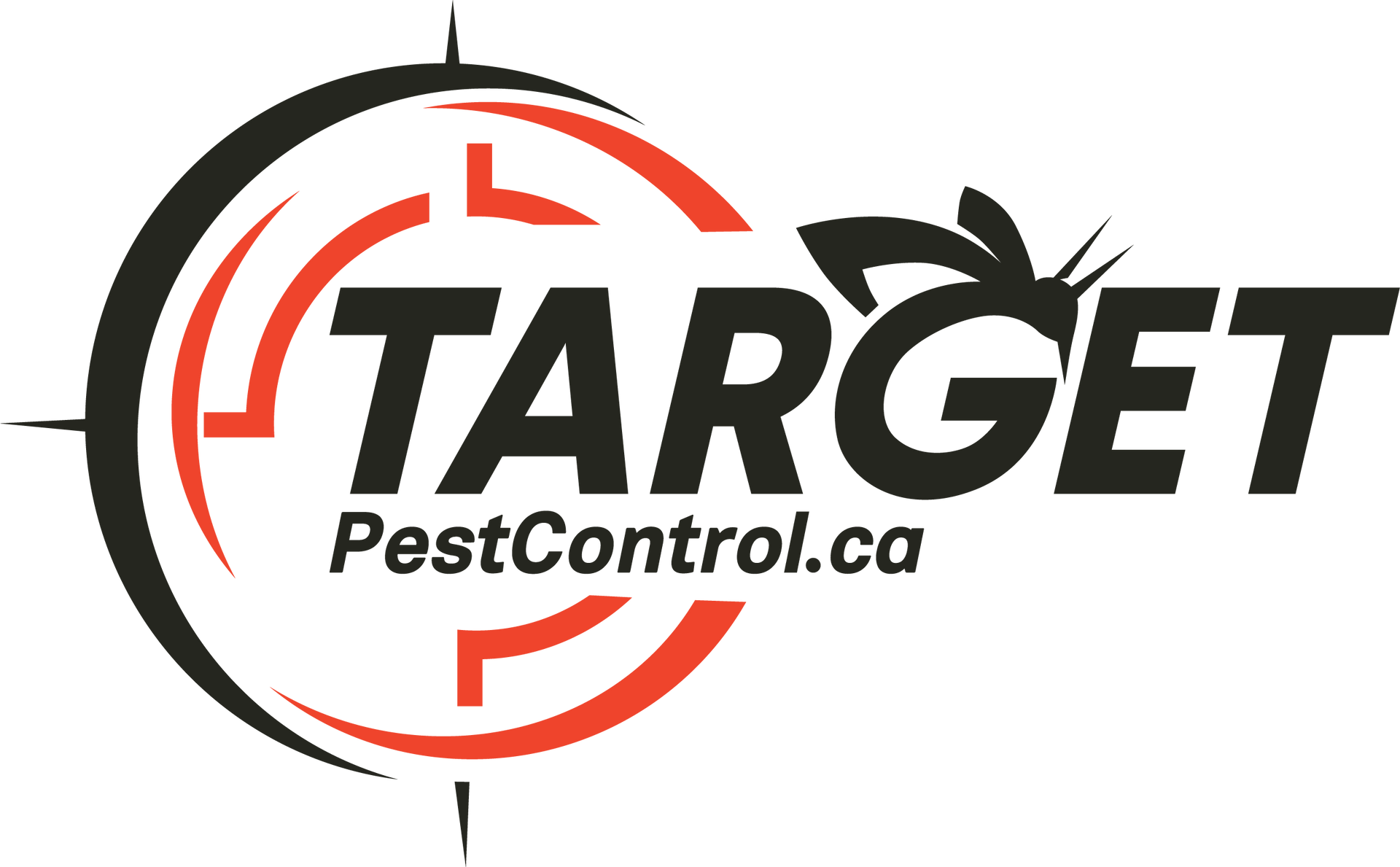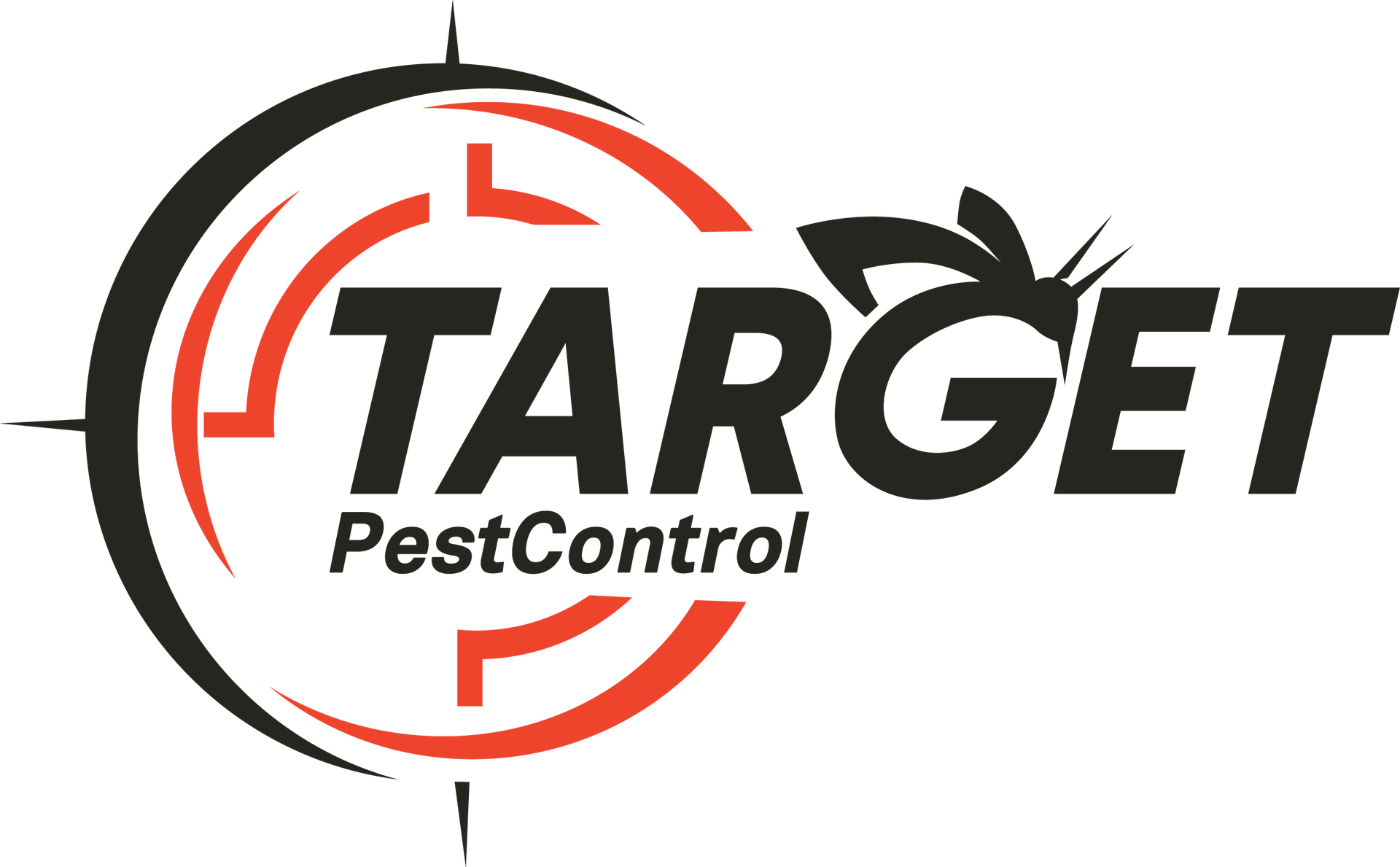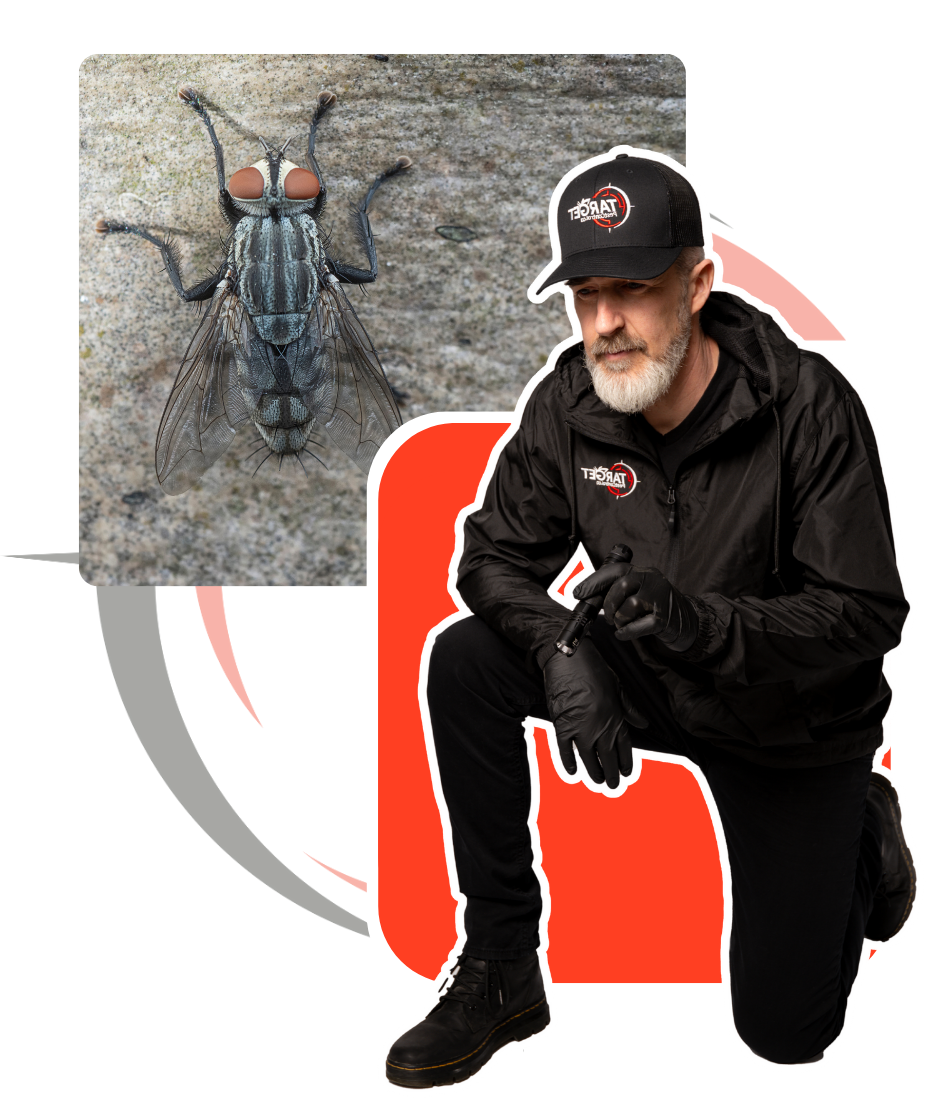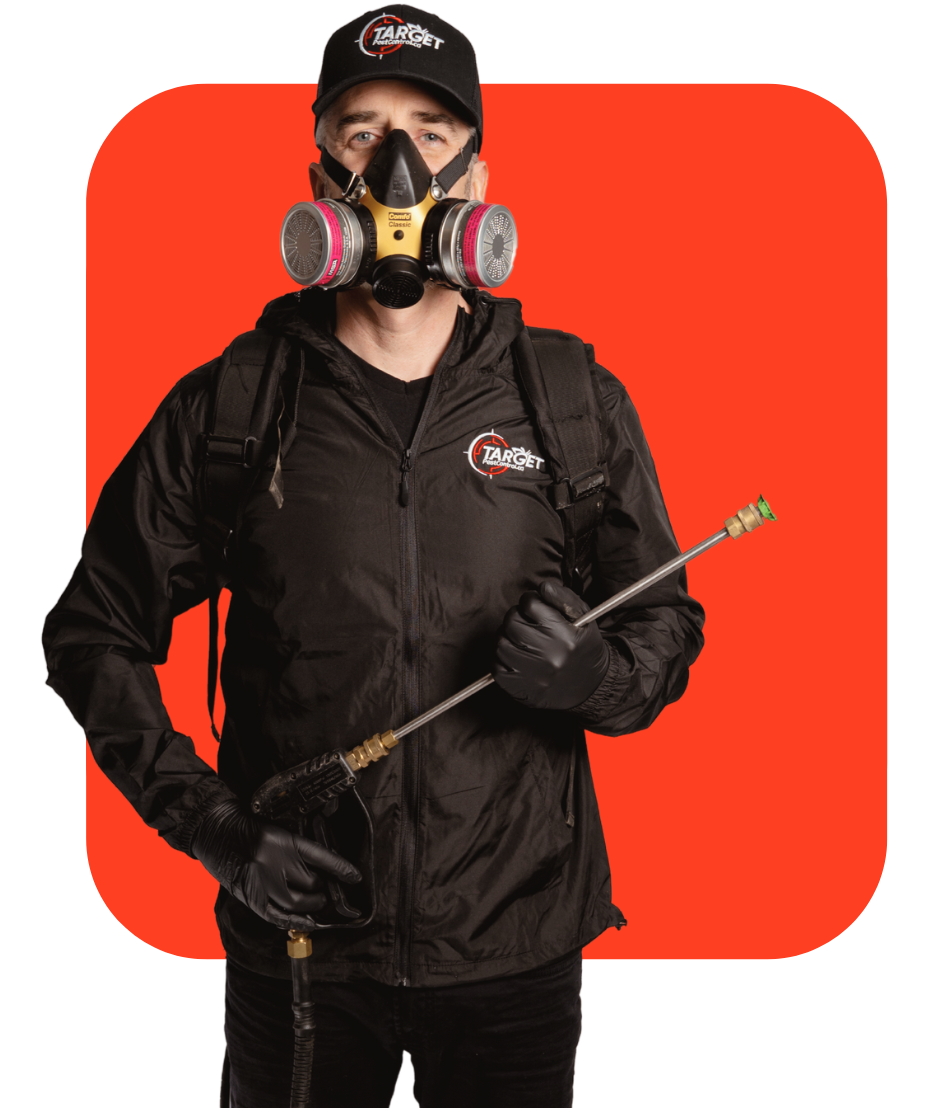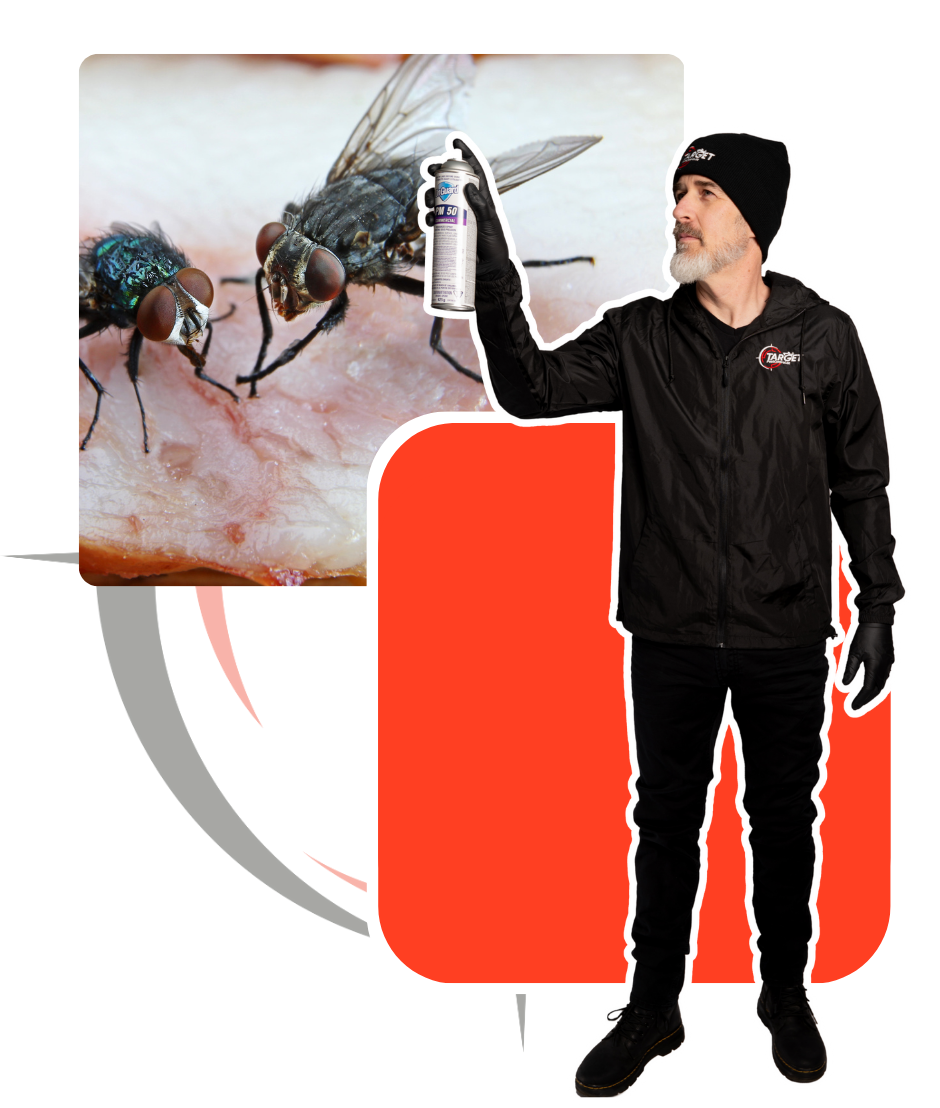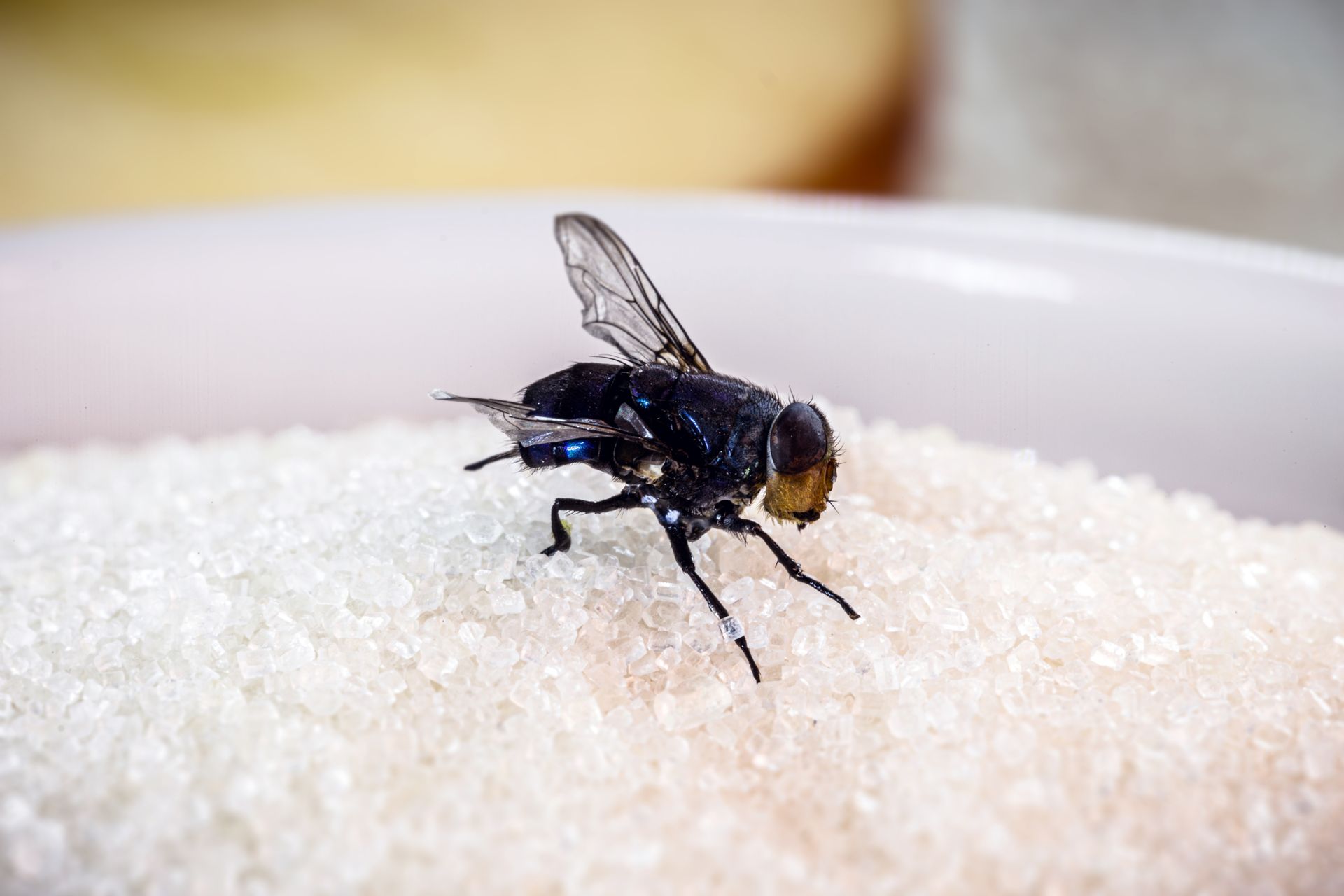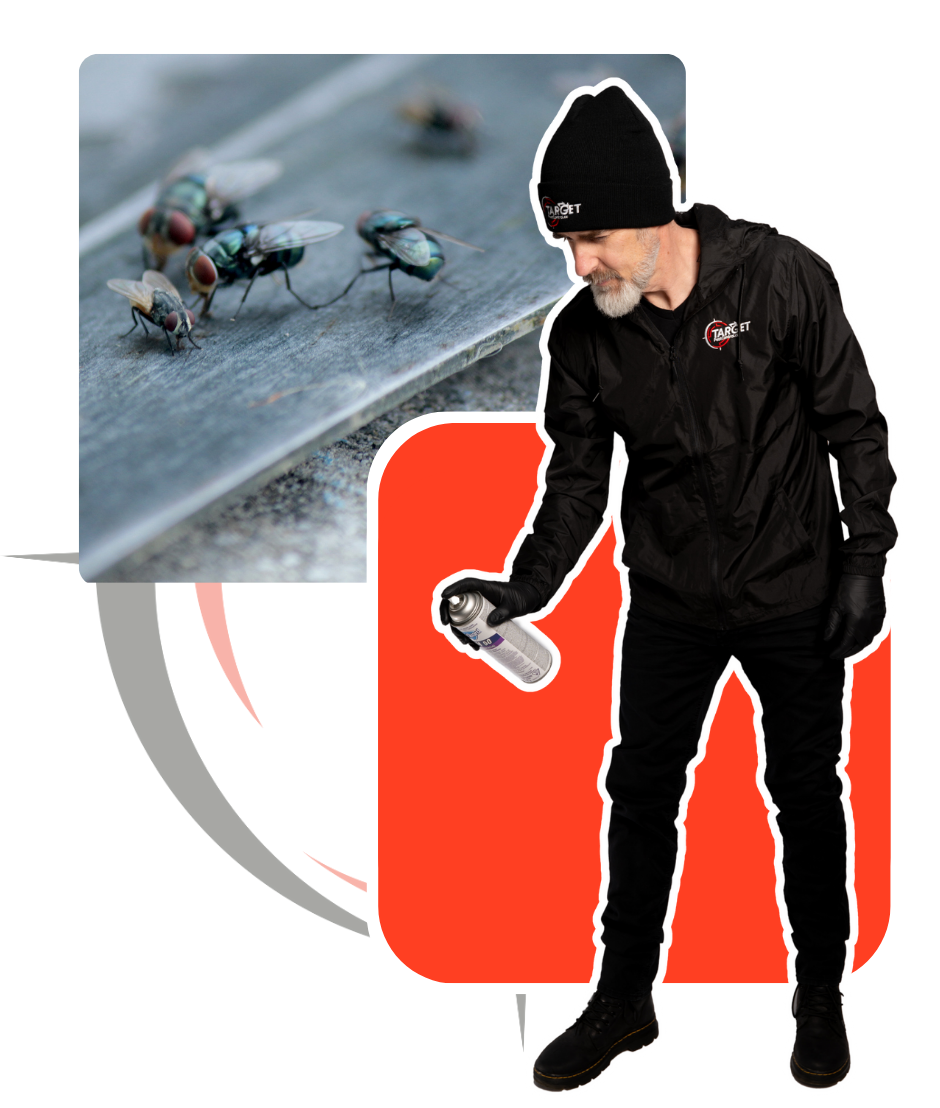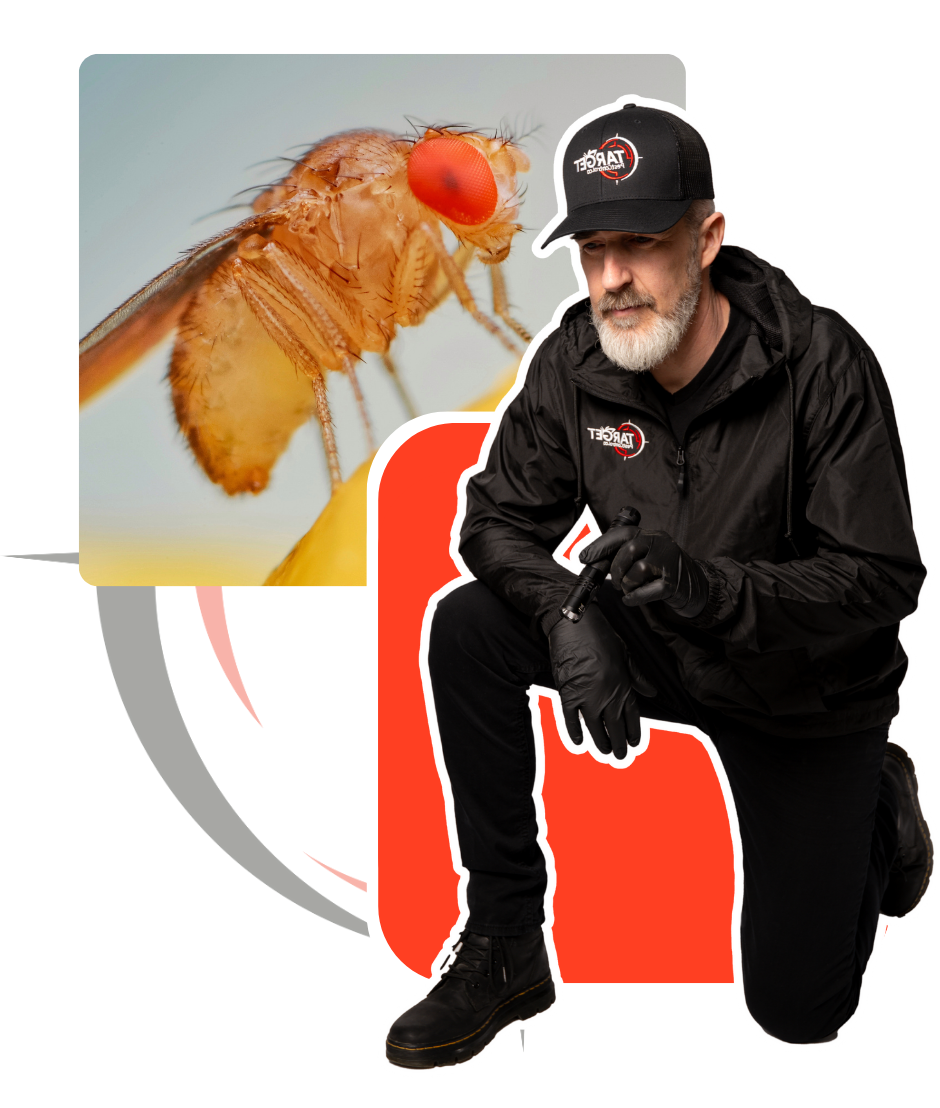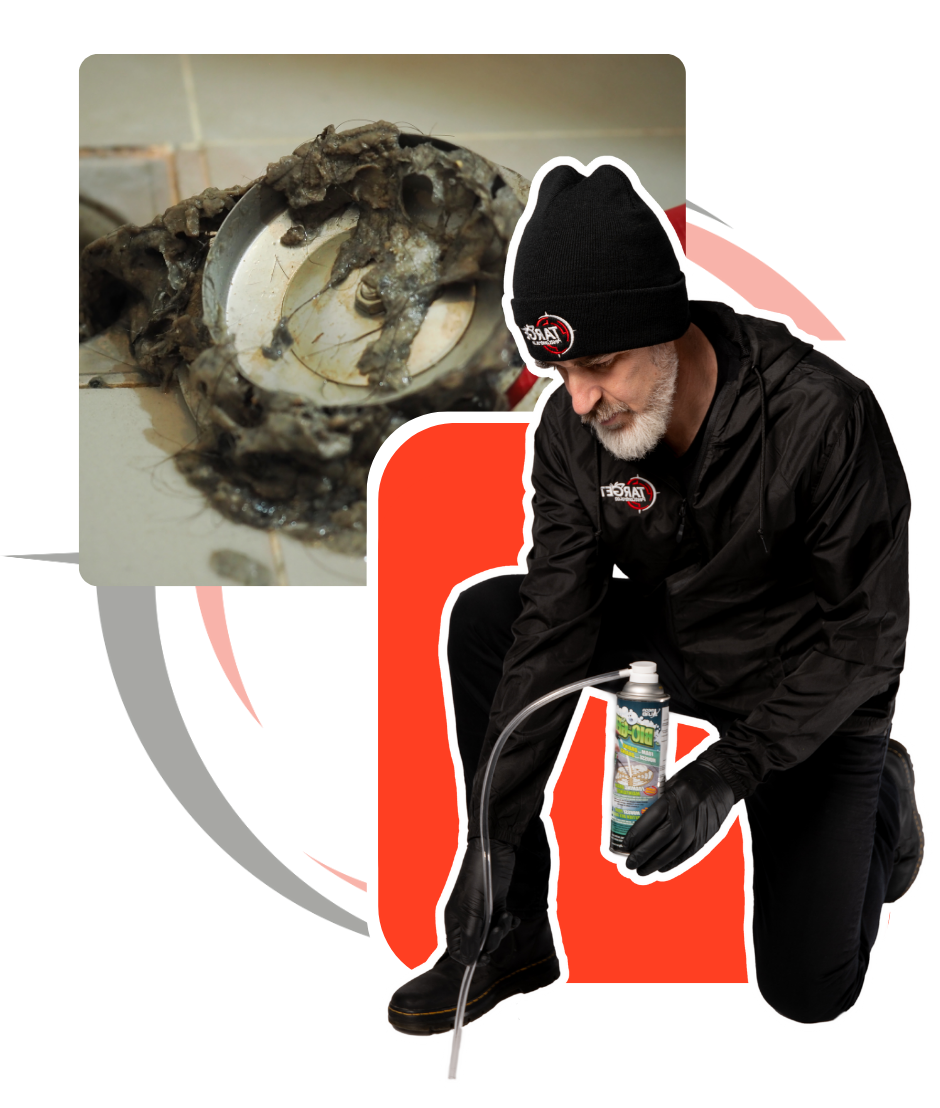Fly Control
At
Target Pest Control, our experts are highly skilled in managing fly infestations with efficient and secure methods for both
residential and commercial properties. Using advanced techniques, we accurately identify and eradicate flies at their source, focusing on their favoured breeding sites and activity areas within your premises. Our specialized treatments are designed to reduce and minimize fly populations, ensuring they are thoroughly removed from your living and working spaces.
Our fly control services are
cost-effective to ensure your property is safeguarded throughout the year. We serve
Calgary,
Airdrie,
Okotoks,
Chestermere, and
Cochrane, offering customized solutions that tackle the unique fly control challenges of each location.
At Target Pest Control, our expert team excels in providing top-tier fly control services. Armed with extensive knowledge, continuous training, and state-of-the-art equipment, they approach every task meticulously and securely. Ready to book? Contact us today for a free quote.
We emphasize the effectiveness of our work by using commercial-grade chemicals and bio-remediation services. This approach ensures that fly treatments are as effective as possible. By using a foaming agent to break down organic matter, our customers see even better results.
Our approach involves identifying and targeting key areas where flies are likely to breed, using safe and effective methods to eradicate them. For comprehensive protection, we treat both the perimeter of your property to prevent entry and any indoor spaces that are affected, ensuring a fly-free environment.
How Dangerous Flies?
Flies, particularly common
houseflies, are often dismissed as mere nuisances, but their potential to spread disease makes them a
significant health hazard. These pests can transfer over 100 pathogens, including
salmonella,
tuberculosis, and
cholera, simply through brief contact with surfaces or food. Flies collect these pathogens on their legs and mouths when feeding on feces, trash, and decaying matter. Consequently, when a fly lands on your next meal, it can deposit these pathogens, which can lead to illness. The risks are particularly high in environments where
food is not covered and sanitation is poor.
Preventative measures can greatly reduce the risks associated with flies.
Maintaining cleanliness is crucial; this includes regularly removing garbage, sealing food containers, and using screens on windows and doors to prevent flies from entering. In areas where flies are prevalent, the use of appropriate insecticides, fly traps, and electric fly zappers can help manage and reduce fly populations. Understanding and addressing the risks flies pose are important steps in protecting public health.
How Do Flies Behave?
Flies exhibit behaviours that are intriguingly complex given their small size and simple brain structure. The common housefly, for instance, is known for its
ability to quickly adapt to and navigate within different environments. This agility is partly due to their compound eyes, which provide them with a nearly
360-degree field of vision, allowing them to see in multiple directions at once and avoid predators effectively. Flies are also attracted to light, which is why they are often seen buzzing around lamps and windows.
Their behavior is also dictated by their need to feed and breed. Flies are primarily attracted to
decaying organic matter and sweet substances, which serve as food sources and breeding grounds. They have a highly developed sense of smell, which they use to locate these resources from a distance. Additionally, flies reproduce rapidly;
a single female can lay up to 500 eggs in her lifetime, which hatch into larvae within a day under optimal conditions. This rapid life cycle allows fly populations to increase quickly if not properly controlled.
Can I Treat Flies Myself?
Yes, you can treat fly infestations yourself using several effective methods. The first step is to minimize the conditions that attract flies by ensuring
good sanitation practices. Keep your home clean, especially the kitchen, by covering food, regularly taking out the trash, and cleaning up any spills immediately. Seal potential entry points, such as gaps in windows or doors, to prevent flies from entering.
For dealing with flies that have already entered your home, you can use
over-the-counter insecticides specifically designed for flies. Be sure to follow the product instructions carefully for safe and effective use. Additionally, various types of
fly traps, such as sticky fly paper, light traps, and baited traps, can be very effective in capturing flies. DIY remedies, like homemade vinegar or soap traps, can also help manage fly populations. Regular monitoring and maintenance are key to keeping fly numbers under control, ensuring a hygienic and comfortable environment.
"We’ve had a persistent issue with flies at our cafe in downtown Calgary, especially during the summer months. We called in Target, and
they were fantastic. They treated the problem efficiently and gave us some great tips on preventing future infestations."
I Have Flies... Now What?
When you discover a fly infestation, it's important to act quickly
to address the issue before it escalates. First, thoroughly inspect your home to determine where the flies are congregating and why. Common areas include kitchens, bathrooms, and garbage disposal areas where food and moisture attract these pests. Once you've identified their hubs,
focus on cleaning these areas meticulously, removing any potential fly attractants, such as rotting food or standing water.
After cleaning, you can employ various methods to control the fly population.
Natural deterrents can be surprisingly effective; for example, herbs like basil or mint, or essential oils like eucalyptus and lavender, repel flies naturally and can be used around the home.
Another method is to use
UV light traps which attract and kill flies without the use of chemicals, making them a safer choice for households with pets or children. Regularly assessing your home for new signs of fly activity is essential to keep them at bay and ensure your environment remains hygienic and fly-free.
"I was really
frustrated with the flies in our kitchen and patio area, so I finally decided to call a pest professional from Airdrie. The technician John was polite and knowledgeable, explaining how we could minimize the problem in the future. They treated our home and set up some traps, and it
made a noticeable difference within hours."
Fly Treatment Cost
The cost of fly treatment can vary widely depending on a range of factors. Firstly, the severity of the infestation plays a crucial role; more severe infestations typically require more extensive treatment efforts, which can increase the overall cost. The size of the area that needs to be treated also affects the price, as larger spaces may require more time, labor, and materials. Additionally, the type of treatment chosen impacts the cost; options range from basic chemical sprays
to more sophisticated methods like professional-grade electric fly zappers or UV light traps.
Before considering professional extermination, it's advisable to try all recommended cleaning and prevention strategies. This includes removing sources of attraction such as food waste and standing water, sealing entry points, and using at-home remedies like fly paper or homemade traps. These efforts can
significantly reduce or even eliminate the fly population, potentially saving the cost of professional treatment. If these measures do not control the infestation, then it may be necessary to consult with a pest control professional to assess the situation and discuss treatment options that fit your specific needs and budget.
Fly FAQS
Customer Testimonials
Customer reviews play a crucial role in the pest control industry, especially when it comes to addressing specific challenges like fly control. Reviews from past customers provide valuable insights into a company's effectiveness, speed, and safety measures in handling such situations.
In essence, customer reviews bridge the trust gap between pest control services and those in need of urgent exterminator treatments, highlighting the importance of quality service and customer care in the industry.
"Our family-owned restaurant in Okotoks struggled with a fly problem until we got professional help. The team that came out was prompt and professional, setting up light traps and giving us preventive maintenance tips. Their service was excellent, and we saw an immediate improvement. It’s such a relief not to worry about flies affecting our customers' experience anymore."
Emma P.
-
Okotoks, AB
"Dealing with flies at home was becoming a daily nuisance, especially in the living areas. I contacted Target Pest Control based in Calgary, and they were so helpful right from the start. The technician who visited my home was very professional and conducted a thorough inspection before starting the treatment. I'm glad to say the fly activity has drastically reduced. Thanks to their efficient service, our home feels cleaner and more comfortable."
Mike L.
-
Calgary, AB
